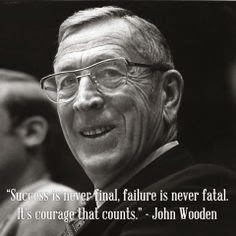In 1996, Skip Away was second in the Preakness
and a memorable duel in the Belmont Stakes.
I guess it was ironic that Skip Away, a champion thoroughbred horse that never won a Triple Crown race but came in second in both the Preakness and the Belmont, died yesterday, apparently of a heart attack.
Ironic because today is the 135th running of the Preakness Stakes.
Skip Away was the third–highest–earning thoroughbred in North America. Back in 1996, when he was a 3–year–old, Skip Away bounced back from an unexpectedly poor showing in the Kentucky Derby, starting with his second–place finish in the Preakness. Perhaps something like that will happen today.
If something like that does happen today, though, I'm inclined to think that would make Skip Away's death more of an omen than an irony.
For that matter, I guess you could find at least as much symbolism in the problems that congressional incumbents are encountering in the 2010 midterm campaigns.
But that's only if Super Saver doesn't win this afternoon. Personally, though, I'm inclined to think he will win. I don't have any special reason for this, other than the fact that Calvin Borel, who is becoming the hottest jockey in thoroughbred racing, will be riding him today, as he did two weeks ago at Churchill Downs.
I have long believed — and often said — that each of the events in thoroughbred racing's Triple Crown has its own unique identity and agenda.
- Of the three races, things are probably easiest — at least in terms of promotion — for the Kentucky Derby, the first jewel that was run two weeks ago. It always generates interest because, well, it's the Kentucky Derby.
It is the big–name annual event in its sport, like the Masters is for golf, Wimbledon is for tennis and the Indy 500 is for auto racing. It doesn't need to do anything special to draw attention to itself.
Each of those sports has other events that are equally prestigious but not as legendary. And, since those sports have no clear championship event — like a Super Bowl or a World Series — those competitions sort of fill that role (rightly or wrongly) in the public's mind.
The race itself doesn't really matter. In recent years, it's been run in sloppy conditions, but the only thing that really seems to hurt attendance (but not necessarily ratings) is a poor economy.
As long as the Kentucky Derby's coverage is generous with its images of mint juleps, bizarre hats and the playing of "My Old Kentucky Home," the viewers will be satisfied. - The final jewel of the Triple Crown is the Belmont Stakes five weeks later in Elmont, N.Y. It is a grueling distance — in comparison to the first two races — and justifiably known as the "Test of the Champion."
I don't think the folks who run the Belmont particularly care if a horse wins the Triple Crown. They just want the Kentucky Derby winner to win the second race — which means a Triple Crown is possible.
If a different horse wins those two races, the Belmont is rendered irrelevant. That is unfortunate, but that's the way it is. The Belmont's usually a pretty nice race — visually appealing and typically competitive (well, except for that time in 1973 when Secretariat won by 31 lengths) — but it's been more than 30 years since a horse won a Triple Crown.
So, in early June with other activities vying for people's time and attention — and money — all that potential viewers want to know is whether it is possible for a horse to win the Triple Crown by winning the Belmont. If the answer is no, then here's a hot tip on a sure thing — TV ratings will be way down ... and attendance at places like the beach, amusement venues, ballparks and movie theaters will be way up. - Today, we have the second jewel of the Triple Crown, the Preakness Stakes at Pimlico in Baltimore. All eyes will be on Super Saver, the winner of the Kentucky Derby two weeks ago, as Marty McGee of The Daily Racing Form observes at ESPN.com.
In its way, I suppose, the Preakness is often forgotten — regarded as, at best, the legitimate albeit nondescript middle child, and, at worst, the redheaded stepchild of thoroughbred racing — but, as McGee points out, the Preakness has one thing that the Derby does not — the Derby winner.
However, the Derby winner must also win the Preakness to breathe life into the Belmont, to give a purpose to its existence.
Before the sun goes down, we will know if the Belmont Stakes three weeks from today will have any meaning.
The Preakness is "setting up differently from the Derby," Menez writes, but "there is one significant similarity between the two races: The top choice is still Super Saver."
Is that due to his jockey, the aforementioned Calvin Borel, who won the Derby and the Preakness aboard two different horses last year? Well, Menez hardly mentions Borel, focusing instead on the horse's attributes. For his part, Borel, a colorful Cajun, expects a "super race" from Super Saver.
Liam Durbin of the Baltimore Sun seems to think Super Saver can make it two for two as well.
But Brad Telias of The Sporting News isn't convinced. He likes Lookin at Lucky, which is where that omen I mentioned earlier may come into play. Lookin at Lucky finished sixth in the Derby two weeks ago. "This time, there will be good karma for horse and rider, and the beaten Derby favorite will finally get his due," Telias writes.
Shades of Skip Away.



No comments:
Post a Comment